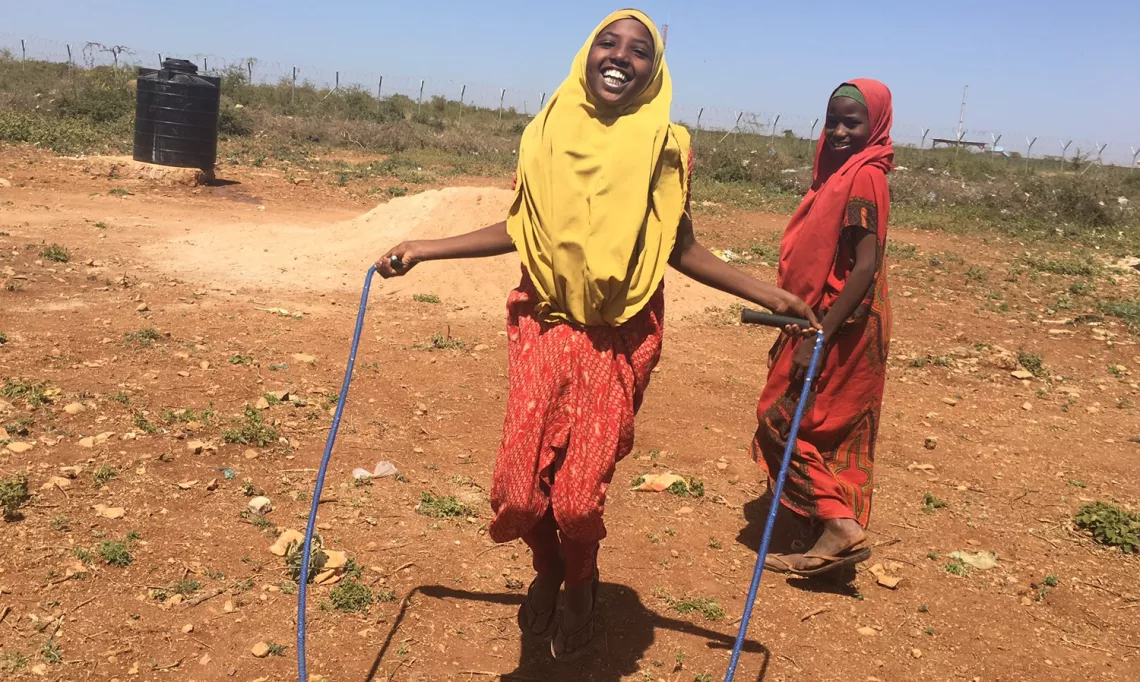USAID supports former animal herder Adan to show his skills in the classroom
The Alternative Basic Education school he attends, supported by USAID

Baidoa - Fourteen-year-old Adan Kero, wakes up early every morning in the makeshift Dusta camp on the outskirts of Baidoa town which is now home to 250 families displaced by the drought which swept through Somalia. Adam jumps out of bed eagerly. The Alternative Basic Education school he attends, supported by USAID, is so close he can see it from home and he is one of the first to reach his class every morning.
Adan’s family, who were pastoralists, were forced to leave their home in Bulo Barako village about 40 kilometres from Baidoa, due to the drought nine months ago. Adan used to look after his family’s animals and this is the first time he has been in a school.
He proudly picks a piece of chalk, gestures and asks us to look at the blackboard as he writes in English ‘My name is Adan Kero’. He says with a confident demeanor, ‘Life has changed for me since I joined the school. I learn and I play. I have many friends. I can now read, write and play football. What more can I ask for?” He says in the future he dreams of becoming a teacher.

Alternative Basic Education (ABE) is a unique approach designed to reach children, like Adan offering a second chance for children who missed out on enrolling in formal primary education. It has a flexible approach with interventions including temporary learning spaces, accelerated curriculum, flexible timetables, interactive radio instruction and appropriate and relevant reading materials, education kits, teacher resources, and other materials to help provide quality, relevant, and flexible educational opportunities.
Meanwhile twelve-year-old Suada in Hafato also enjoys attending her first ever school - the Alternative Basic Education (ABE) School called Hafato next to the makeshift camp of the same name where she lives. Suada’s mother, sisters and brothers share the same small hut in the settlement. The family left their father back in the village in Gurban Dinsor when they left nine months ago due to the drought. Suada never went to school in the village and helped her family looking after the goats until they all died. She loves learning English, Somali and mathematics. In her free time, she reads together with her classmate Robbi.

She is proud of the fact that she can read and write in both Somali and English. The school provides take-home rations of rice, wheat flour, sugar, oil which Suada gets once a month. This ration is provided from the emergency cash grant. “I miss my home in the village, but I cannot complain as I am now able to go to school while in the camp”, she says.




